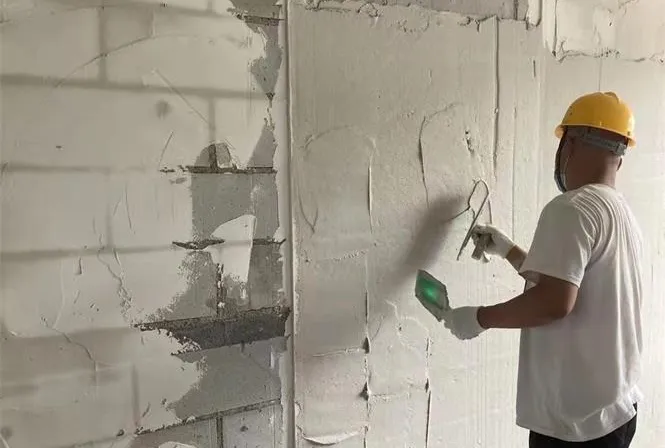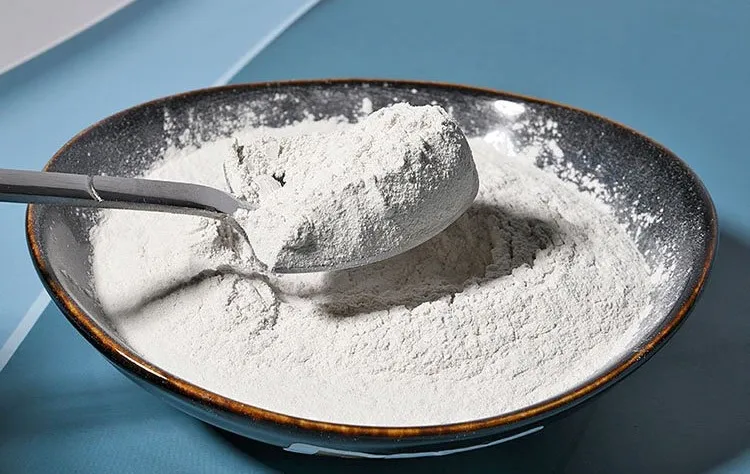
Optimizing Plaster Performance: The Role of Gypsum Retarders and Accelerators
In the construction and renovation industries, managing the setting time of plaster is critical for achieving a smooth, durable finish. This is where the use of chemical modifiers like gypsum retarder chemical and gypsum plaster accelerator comes into play. These additives help plastering professionals adjust set times based on working conditions and project needs.

Balancing Set Times with Chemical Additives
A gypsum retarder chemical slows down the hydration of calcium sulfate hemihydrate in plaster, giving workers more time to apply, level, and refine surfaces. This is particularly helpful in hot, dry climates or for large surface areas where fast setting could lead to cracks or poor adhesion. The most common retarder in gypsum is citric acid, although alternatives such as cream of tartar plaster retarder are also widely used, especially in DIY applications. Cream of tartar (potassium bitartrate) is a natural, food-safe additive that effectively extends plaster setting time without compromising quality.
On the flip side, when faster setting is needed—such as in cold environments or when applying small batches—a gypsum plaster accelerator is the go-to solution. These accelerators speed up the curing process, allowing quicker turnaround between coats or faster project completion. Both types of additives give professionals greater control over the workability and finish of plaster surfaces.

Choosing the Right Retarder for Your Project
Selecting the appropriate retarder for plaster depends on various factors including the scale of the project, environmental conditions, and desired setting time. For professionals working on large-scale or intricate tasks, a commercial-grade extra time plaster retarder Screwfix product can be a practical solution. Available through hardware suppliers like Screwfix TangZhi, these formulations are designed for consistent performance and compatibility with different gypsum-based plasters.
The extra time plaster retarder Screwfix variant typically comes as a powder that is mixed into the dry plaster before water is added. It is especially useful in complex projects like decorative molding, ceiling panels, or when applying plaster over large wall areas. These specialized products help maintain an even finish without rushing, reducing the risk of uneven drying or visible seams.
It’s also important to note that not all retarders are created equal. While cream of tartar plaster retarder works well in small or home-based projects, commercial or large-scale applications may require more robust gypsum retarder chemical blends engineered for stability and uniform dispersion.
For time-sensitive jobs, the decision to add a gypsum plaster accelerator instead may be more appropriate. These are often used in patch repair, cold weather jobs, or when tight deadlines are involved. The flexibility of using either a retarder or accelerator depending on situational needs makes gypsum plaster one of the most adaptable materials in modern construction.

FAQ
1、What is a gypsum retarder chemical?
A gypsum retarder chemical is an additive used to slow the setting time of gypsum plaster, allowing for longer working periods and better surface finishing.
2、When should I use a gypsum plaster accelerator?
A gypsum plaster accelerator is ideal when faster setting times are needed—such as in colder climates or when working under tight time constraints.
3、Is cream of tartar plaster retarder effective?
Yes, cream of tartar plaster retarder is a natural and effective option for DIY or small-scale projects, offering mild retardation without affecting plaster strength.
4、How do I choose the best retarder for plaster?
The right retarder for plaster depends on your project's size, setting time needs, and environmental factors. For large projects, commercial formulations offer more reliable performance.
5、What is the most common retarder in gypsum?
The most common retarder in gypsum is citric acid, though other substances like tartaric acid and cream of tartar are also frequently used.
6、What is an extra time plaster retarder Screwfix product?
Extra time plaster retarder Screwfix products are readily available additives designed for professional use, extending plaster setting time to allow better control and finishing.
Controlling the setting time of plaster is essential for achieving high-quality, long-lasting surfaces. Whether you're using a gypsum retarder chemical for longer workability, a gypsum plaster accelerator for speed, or a natural option like cream of tartar plaster retarder, understanding your options allows for greater flexibility and improved outcomes. With products like the extra time plaster retarder Screwfix range and knowledge of the most common retarder in gypsum, both professionals and DIYers can take on plastering tasks with confidence and precision.
-
Hydroxypropyl Starch as a Sustainable Construction AdditiveNewsNov.24,2025
-
The Gelation Properties of CMCNewsNov.21,2025
-
Redispersible Latex Powder and Water Retention CapacityNewsNov.21,2025
-
Dosage Control for Polycarboxylate Water ReducerNewsNov.21,2025
-
Film-Forming Properties of Polyvinyl AlcoholNewsNov.21,2025
-
The Function of Gypsum Additives in MortarNewsNov.21,2025





















